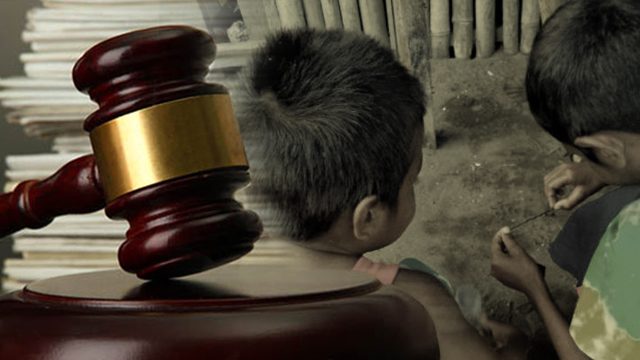SUMMARY
This is AI generated summarization, which may have errors. For context, always refer to the full article.

MANILA, Philippines – The full and proper implementation of the Juvenile Justice and Welfare Act, not the lowering the age of criminal responsibility, will help children at risk and in conflict with the law from committing crimes, Juvenile Justice and Welfare Council (JJWC) policy and research officer Jackielou Bagadiong said on Thursday, August 23.
“The JJWC advocates for the full implementation first of the law because there are still a lot of misconceptions of the Juvenile Justice and Welfare act – that the child always gets away with whatever crime he or she does but its not true,” Bagadiong said during the Department of Education’s first national child protection summit.
Bagadiong said proposals from lawmakers on lowering the age of criminal responsibility from 15 years old to a “compromise” of 12 years old relied on reports that “hype” the idea of children in conflict with the law. (DSWD chief: Lower age of criminal liability ‘anti-poor,’ won’t curb crime)
Lawmakers earlier proposed to lower the criminal age of responsibilty, saying adult criminals purposely make use of youth to commit heinous crimes, knowing they cannot be held criminally liable.
“The child still has this liability but we don’t detain them because given the current state of our jails, it wouldn’t be possible, it would harm our future generation if we do that,” she said.
Republic Act 9344 or the Juvenile Justice Law of 2006 sets the minimum age of criminal liability at 15 years old. This means that those between 15 to 18 years old may be detained in youth centers and go through rehabilitation programs. Those under 15 years old are exempted from criminal liability and undergo intervention.
To put children in jail would be like putting them in “schools of crime,” Bagadiong said.
“Our jails in the Philippine setting (are) what we can call school(s) of crime. If a child enters jail, one can be assured that when he or she comes out, she will have had a network of criminals that can assist him or her later on,” she said.
There are a number of bills in the House of Representatives seeking to lower the criminal age of responsibility. A counterpart bill seeking to exempt children under 12 years old from criminal liability has also been filed in the Senate. – Rappler.com
Add a comment
How does this make you feel?
There are no comments yet. Add your comment to start the conversation.